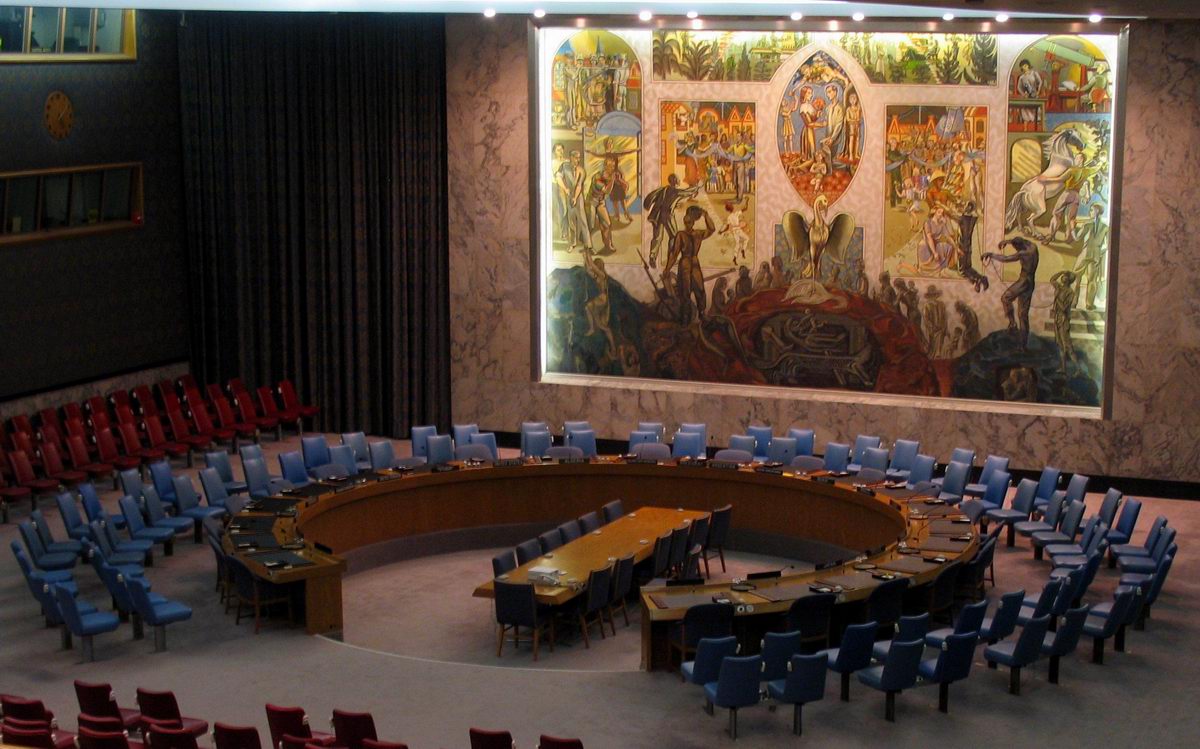India’s immediate focus should be on nudging inter-state relations into a working relationship to facilitate cooperative action.
New year starts for India by joining the United Nations Security Council (UNSC) as an elected non-permanent member for two years. This is the eighth time that India will be part of this forum constituted to maintain international peace and security. The last time India occupied this high chair was a decade ago. The global political environment then was quite different from now. Today, trust levels amongst major powers are low, nationalistic hedging is high, and global security appears out of focus.
Besides the fraught state of international affairs, India is also beset with immediate regional security concerns. To the ever-present challenge of Pakistan’s terrorism has been added an aggressive and expansionist China. As a new great power, Beijing appears keen to rewrite rules of engagement and is flexing its economic and military muscle to simultaneously seduce and bully nations. The US, on the other hand, while militarily still the strongest, is economically beleaguered and domestically distraught. Priorities of the new US administration on global front are yet unclear. Meanwhile, the UK and France are struggling with domestic concerns, and Russia’s interests and reach are closer home and limited than before. All in all, international peace and security appears caught in myopic games of great powers. Their positions on geopolitical hotspots and wider problems of climate change, terrorism, migration, maritime and outer space security, nuclear risks, etc, reflect this reality.
India’s tenure at the UNSC, therefore, comes in challenging times. But this also presents an opportunity to change trendlines through its actions and interventions. Of course, all nations use these platforms to secure national interests. India will do so too. It will have a chance to checkmate specific inimical and malafide moves attempted by adversaries by either nixing such moves or by raising uncomfortable issues for others.
More importantly, though, India will be able to leverage its tenure to recall into attention the relevance and benefits of cooperative security. Given that contemporary threats are global in reach and character, no nation can fence itself off and be safe. India is singularly well placed to bring this into active consciousness since it values oneness of life as part of its culture, and prioritises peace over security as part of its strategic culture.
Unfortunately, this thought is not popular in current times of emphasis on realpolitik. But, securing long-term national interest has never been purely a function of military capabilities or shallow diplomatic cleverness. Leadership of issues of common concern is critical. India has the opportunity to build networks with like-minded nations to ensure constructive outcomes. In fact, the intention should be to so frame choices as to offer a platform for all to WIN—Work to ensure fairness and equity in multilateralism; Inculcate respect for rule of law; and Nurture peace and security. While there are many issues that fit this framework, five specific ones of greatest national concern and international appeal are identified below in ascending order of danger to humanity.
Non-traditional security threats to maritime and outer space could be the first two subjects. Concerns around growing marine pollution or over-fishing pose a threat to fragile ecosystems, just as growing space debris and traffic pose a threat to peaceful use of outer space. Adherence to rules derived from laws or codes of conduct or even norms that govern these domains would benefit all stakeholders.
A third issue of concern is trans-national terrorism. As terrorist activity breaches new frontiers, no country can afford to adopt an ostrich like approach. India should use its tenure to force a search for solutions, especially on reining in terror finance infrastructure, cyber threats and use and misuse of information and communication technologies by state and non-state actors.
Fourthly, biological warfare merits attention. The pandemic has sensitised all to possibilities of malicious use of pathogens. While the Biological and Toxin Weapons Convention does exist, its limitations have shown up in the past year. The issue needs some rethinking and action.
A fifth issue for urgent consideration pertains to growing nuclear risks, especially of inadvertent escalation or stumbling into a nuclear war. This could result from misperceptions created by doctrines that promote instability, or technologies that introduce time pressures or ill-considered automation. Such risks require global resolution. India could support a fourth Special Session on Disarmament to meaningfully examine pathways towards elimination of nuclear risks and weapons.
India has a unique opportunity at UNSC to foster an attitude that upholds international peace as a way of securing national interests through choice of subjects and tenor of engagement. Presciently, Prime Minister Narendra Modi’s guide to India’s UNSC participation underscores the five S approach—Samman (respect), Samvad (dialogue), Sahyog (cooperation), Samriddhi (prosperity) and Shanti (peace).
Also high on India’s agenda is the concept of NORMS or new orientation for a reformed multilateral system. This includes UNSC expansion and injecting greater transparency and effectiveness into its working processes. While efforts on this continue, India’s case for permanent membership would be better strengthened by showcasing sincere leadership on international security concerns, especially in a polarised environment.
Therefore, India’s immediate focus should be on nudging inter-state relations into a working relationship to facilitate cooperative action. As a member of the comity of nations, India’s interests cannot be divorced from others on common goods. While some national security concerns need to be handled individually, others need a global solution. India should use its position at the UNSC to safeguard its room of manoeuvre on the first, and propel collective action on the second.
Manpreet Sethi is Distinguished Fellow, Centre for Air Power Studies.

